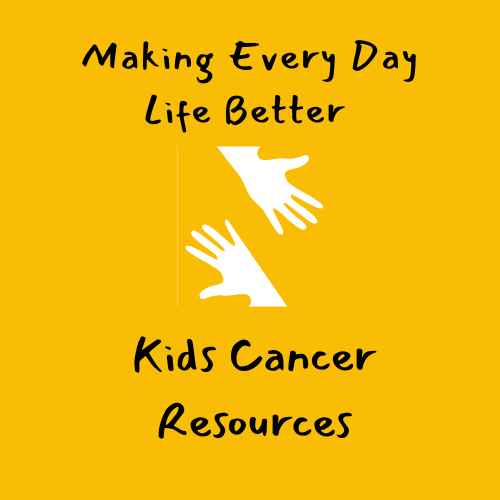What to say when someone’s child has cancer
I
am an advocate of leaning in and just doing your best. That’s what everyone is doing. The family, the doctors, the child. Trying makes a difference. Use wisdom, but don’t be afraid to go for it.
Still, most people don’t like wasting their time for the other person to say “No, thanks!” It’s also definitely awkward to break down how your attempt to help actually didn’t make anything better. Even so, this worst case scenario might be better than nothing. You showed care which is still valuable and maybe learned how to do it even better next time.
Here are some examples of things you can say to help make sure the family is ready to receive.
Offer to Help
“I am sending you/would like to sign you up to ______”. This is perfect for those who are connected but they haven’t asked you for help before. You are letting them know it’s no bother at all and you are in fact, already working on it. You also still give them the option to say, “Wait, I already have that covered,” or “That isn’t necessary,” if they would object to it.
“Here is my number if you need ____.” This is perfect for that person whose number you don’t yet have. Be specific on what you are available for. Venting, babysitting, cleaning the house, getting them out of the house, pet help, lawn care, advice, etc. “Call me anytime you need _(specific)_,” works well for people who are already on a texting/calling status.
“Is there anything I can do to help?” This one has gotten a bad rep for being vague but is really best used when you are really close. You would know they already feel very comfortable coming to you for help because they have asked for your help in the past.
Encourage
“You are showing so much strength.” Now I know not everyone likes this one because it could make people hide their weaknesses. I would say to that, praise them in the open, check on them privately. Not that any parent is looking for praise when they share pictures of their kids in hospital gowns. The part that was uplifting to me was finding that purpose in my pain. Like, maybe me going through my struggle is helping someone else. This goes back to connection, what life’s all about, right? You could also say “I can tell you’re doing your best.”
“How are you doing?” Wow, this one is powerful because it allows them to take the lead. However, make sure you are in a space to follow whether that is going someone bright and sunny or dark and heartbreaking. You can communicate your openness by saying something like, “I’m sure you have mixed emotions,” or “However you are feeling, I want to support you.”
“I am praying for you/thinking of you!” I go into more depth on how helpful this is on this post.
Help Reflect
“How are you changing?” Yeah, maybe they can talk to a therapist but you can talk to them too. They may appreciate having an opportunity to share the deeper thoughts that have been coming up lately. If they seem into it, keep along the same lines. “What ways is this different than every other hard time you’ve experienced in life?” Or, “How is the rest of your family doing?”
“Do our conversations make you feel better?” Sometimes, you may feel like your friend sounds worse at the end of the conversation than they did at the beginning. If they give any response other than yes, see if there is another way to approach things. Maybe give a video call and talk to their child. If you usually meet at their house, try meeting someone relaxing or fun. If you usually meet out of the house, try going to their house and step into their shoes. Point out something charming that’s next to that medicine rack, or that their sick child still looks beautiful, or what a great job they are doing.
“After our talk yesterday, ___________.” What do you do if you feel overwhelmed? It’s okay to let your friend know your limits but how you do it can be the difference between a now non-existent relationship and having a more balanced relationship. Hopefully, you have been keeping them in the loop with what is going on in your life from the start. Even if what they are going through seems more discussion worthy, they actually benefit from accepting the world still hasn’t started revolving around them and they are connected to a bigger picture. So then, be specific as to what part of your life is being affected negatively. “My wife has been wanting to spend more time with me”, “I was really late feeding my kids after we talked for two hours”, “I have been more stressed wondering if my kids are going to get sick”. Also, (important!) offer a solution so your friend doesn’t feel like they need to disappear.
What are your thoughts and experiences with this? Share below or in our Cancer Kids Resources group.











